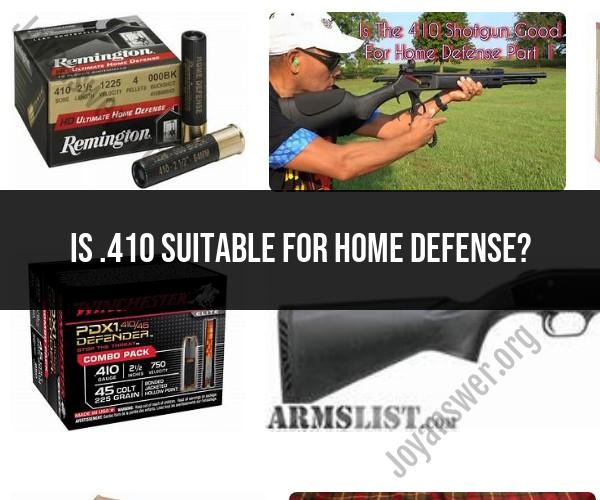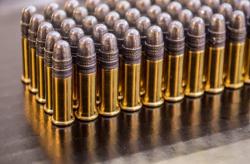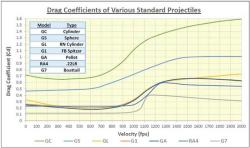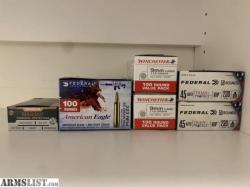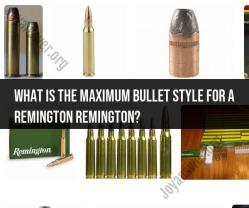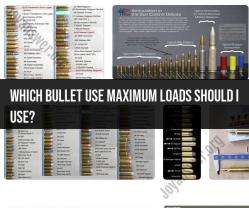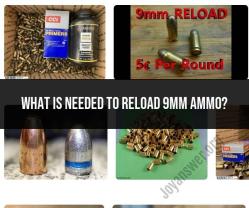Is .410 suitable for home defense?
The suitability of a .410 shotgun for home defense is a topic of debate among firearm experts and enthusiasts. The .410 shotgun, also known as the .410 bore, is one of the smallest shotgun gauges commonly available, and it fires relatively small pellets compared to larger shotgun gauges like 12-gauge or 20-gauge. Whether it's suitable for home defense depends on several factors:
Pros of a .410 Shotgun for Home Defense:
Reduced Recoil: .410 shotguns typically have less recoil compared to larger gauges, making them more manageable for some individuals, including those with smaller frames or less experience with firearms.
Lighter Weight: .410 shotguns are often lighter and more maneuverable, which can be advantageous in close-quarters situations within a home.
Limited Overpenetration: Due to the smaller pellets and lower energy, .410 shotshells may be less likely to overpenetrate through walls, potentially reducing the risk of hitting unintended targets.
Cons of a .410 Shotgun for Home Defense:
Limited Stopping Power: .410 shotshells contain fewer and smaller pellets than larger gauges, which can result in reduced stopping power compared to 12-gauge or 20-gauge shotguns.
Limited Range: The effective range of a .410 shotgun is shorter than that of larger gauges, meaning the pellets disperse quickly, potentially requiring greater accuracy in close-quarters situations.
Adequate Ammunition Selection: While there are various types of .410 ammunition available, the selection is more limited compared to larger gauges. Finding effective defensive loads for .410 can be challenging.
Shot Pattern Spread: In home defense scenarios, the spread of pellets from a .410 shotgun can be relatively wide, which may require precise aiming to ensure effectiveness.
Recoil Sensitivity: Some individuals may still find the recoil of a .410 shotgun uncomfortable, especially if they have little firearms experience.
Ultimately, the choice of a firearm for home defense should be based on individual circumstances, preferences, and training. It's essential to consider factors like your proficiency with the firearm, the layout of your home, the potential for overpenetration, and your ability to accurately place shots under stress.
Many experts recommend considering a 12-gauge or 20-gauge shotgun or a reliable handgun in common self-defense calibers like 9mm or .45 ACP for home defense due to their proven stopping power and ammunition availability. If you opt for a .410 shotgun, it's crucial to practice with it regularly and select appropriate defensive ammunition to maximize its effectiveness. Consulting with a firearms instructor or home defense expert can provide valuable guidance in making an informed choice.
1. Home Defense and .410 Shotguns: Evaluating Their Suitability
The .410 shotgun is a small-bore shotgun that is often used for hunting small game and bird shooting. It is also sometimes used for home defense.
There are a number of factors to consider when evaluating the suitability of a .410 shotgun for home defense, including:
- Pattern density: The pattern density of a .410 shotgun is less dense than the pattern density of a larger-bore shotgun, such as a 12-gauge shotgun. This means that the .410 shotgun is less likely to hit its target with multiple pellets at close range.
- Penetration: The .410 shotgun has less penetration than a larger-bore shotgun. This means that it is less likely to penetrate walls or other barriers, which can be a safety concern in a home defense situation.
- Recoil: The .410 shotgun has less recoil than a larger-bore shotgun. This can make it a good choice for shooters who are sensitive to recoil.
The .410 Shotgun for Protection: Is It a Viable Home Defense Option?
The .410 shotgun can be a viable home defense option, but it is important to be aware of its limitations. The .410 shotgun has a less dense pattern and less penetration than a larger-bore shotgun. However, it also has less recoil.
If you are considering using a .410 shotgun for home defense, it is important to choose the right ammunition. You should also practice shooting your shotgun regularly to ensure that you are proficient with it.
3. Security with a .410: Weighing the Pros and Cons for Home Defense
Pros:
- Less recoil than larger-bore shotguns
- Can be used with a variety of ammunition, including birdshot, buckshot, and slugs
- Can be used for hunting small game and bird shooting, as well as home defense
Cons:
- Less dense pattern and less penetration than larger-bore shotguns
- Not as effective against multiple targets as a larger-bore shotgun with a denser pattern
Overall, the .410 shotgun can be a viable home defense option, but it is important to be aware of its limitations. If you are considering using a .410 shotgun for home defense, you should choose the right ammunition and practice shooting your shotgun regularly.
It is also important to note that some law enforcement agencies do not recommend using a .410 shotgun for home defense due to its limitations. If you are unsure of whether or not a .410 shotgun is the right choice for you, you should consult with a qualified firearms instructor.
